“In the blink of an eye, a routine drive can turn into a life-threatening situation.” Both electric and traditional gasoline-powered cars face risks like collisions, fires, or jammed doors during accidents. Electric vehicles often feature hidden door handles, complicating emergency exits. In such crises, breaking the car window becomes crucial for survival. This is why every driver must carry a car window breaker—a small tool that can save lives when seconds count.
1. Why Every Driver Needs a Car Window Breaker
Accidents strike unexpectedly, whether your car crashes, catches fire, or submerges. Doors and windows may become inoperable due to damage or water pressure. Manual attempts to open them risk wasting vital time.
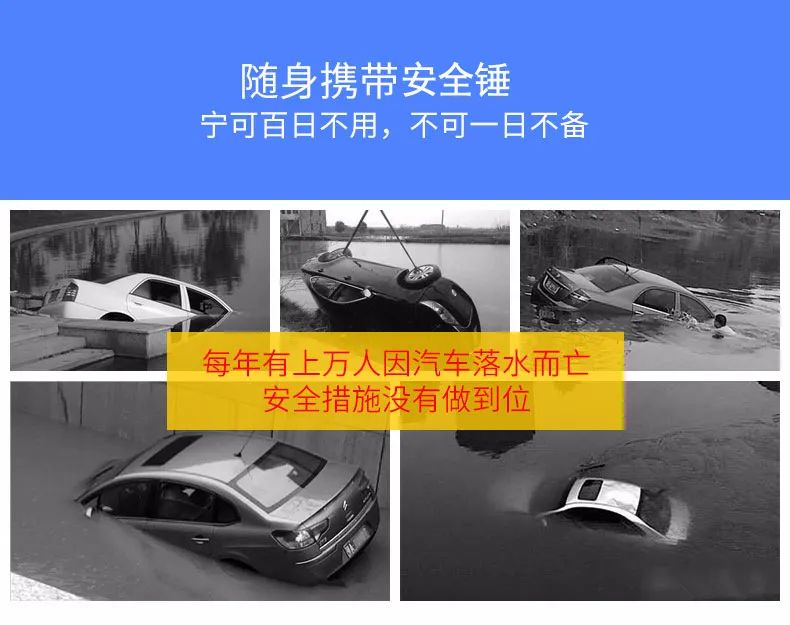
Here’s why a car window breaker is indispensable:
- Rapid Escape: Shatters tempered glass instantly, creating an exit.
- Versatile Use: Many include a seatbelt cutter to free yourself if the buckle jams.
- Compact Size: Smaller than a smartphone, fits on your keychain or in the glove compartment.
- Reusable: Effective on tinted windows and retains functionality after use.
Myth: “I can use a hammer or other tools in my trunk.”
Reality: Post-crash, accessing the trunk may be impossible. Keep the breaker within easy reach.
2. How Does a Car Window Breaker Work?
A car window breaker employs a spring-loaded steel tip or focused force to fracture tempered glass. Here’s the science behind it:

Tempered Glass Weakness: Designed to shatter into small, non-sharp pieces when pressure is applied to a single point.
Focused Force Application: The breaker’s tip concentrates extreme pressure on one spot, rapidly breaking the entire window.
Note: Regular hammers or metal objects often fail due to uneven force distribution.
3. Step-by-Step Guide: Using a Car Window Breaker
Scenario: Your car is submerged or doors are jammed.
- Stay Calm: Unbuckle your seatbelt. If stuck, use the breaker’s seatbelt cutter.
- Target the Corner: Aim for the window’s edge—easier to break.
- Apply Pressure: Press the breaker’s tip firmly against the glass. A loud crack signals success.
- Clear Debris: Kick the window or use the breaker to remove remaining glass.
- Exit Swiftly: Crawl out and move to safety.

Tip: Practice using the breaker to ensure preparedness.
4. Where to Keep Your Car Window Breaker
Accessibility is crucial. Avoid these common mistakes:
- ❌ Glove Compartment: Too distant in an emergency.
- ❌ Backseat or Trunk: Difficult to reach post-collision.
Optimal Locations:
- ✔️ Driver’s Door Pocket
- ✔️ Keychain or Cup Holder
- ✔️ Center Console
Pro Tip: Purchase multiple breakers—one for your car and others for family members.
5. Common Myths About Escaping a Damaged Vehicle
Myth 1: “I can kick the window open.”
Reality: Tempered glass is extremely robust. Escaping without a breaker is nearly impossible.
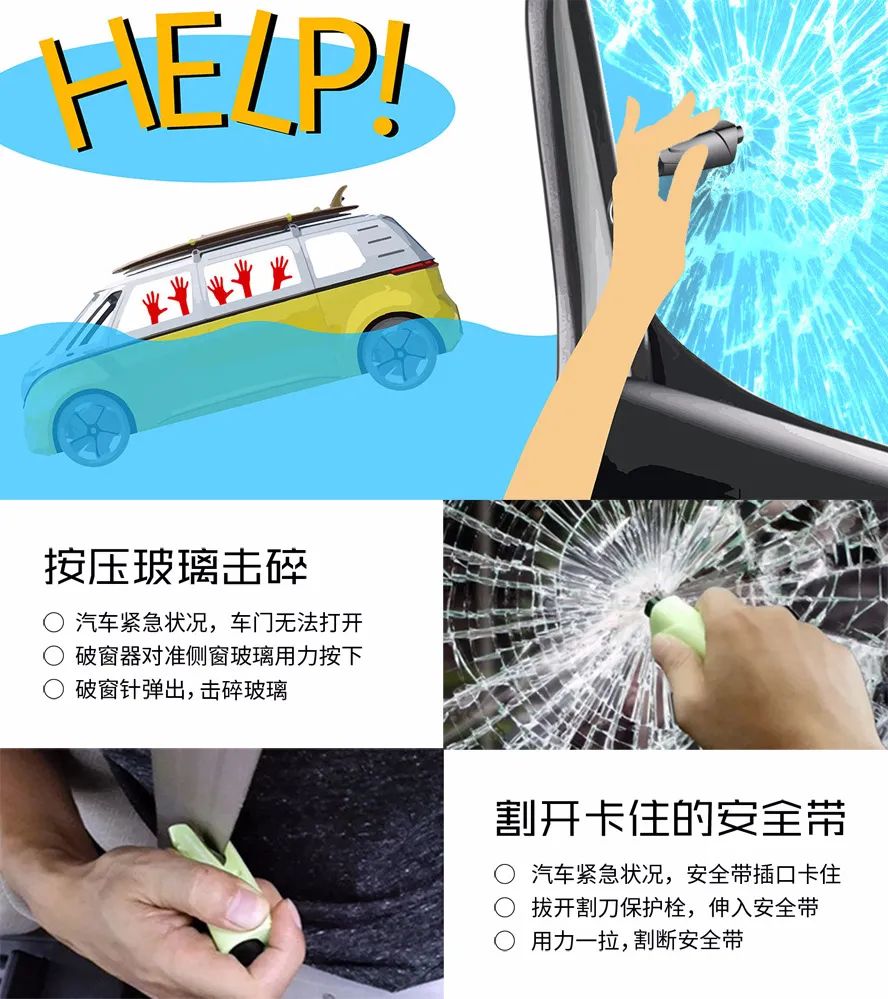
Myth 2: “Wait until the car fills with water to open the door.”
Reality: Water pressure makes doors harder to open. Break the window immediately.
Myth 3: “Headrests can break windows.”
Reality: Effective in movies, not real life. Metal rods lack sufficient strength.
6. Choosing the Right Car Window Breaker
Look for these features in a high-quality breaker:
- Spring-Loaded Tip: Minimizes required force.
- Seatbelt Cutter: Stainless steel blade for quick cuts.
- Durable Material: Crafted from aircraft-grade aluminum or steel.
- Warranty: Reputable brands offer replacements if used.
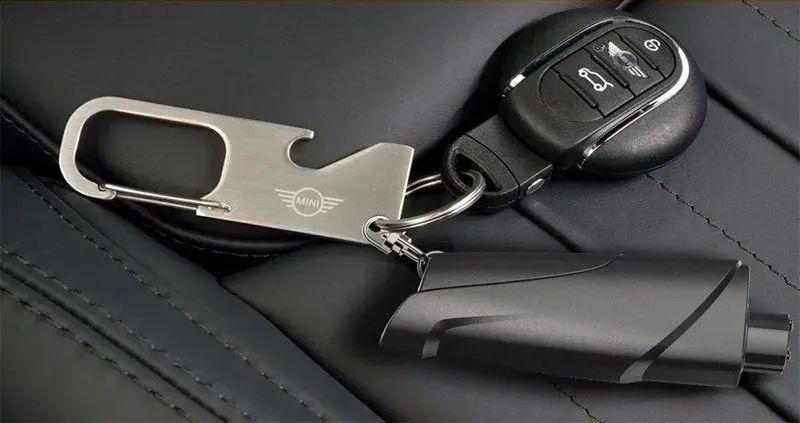
Avoid: Cheap plastic tools—they may fail when needed most.
7. Final Thoughts: Staying Prepared for the Unexpected
A car window breaker, costing under $20, can be a lifesaver in emergencies like fires, floods, or crashes. Quick action is vital, and this tool provides a crucial advantage.
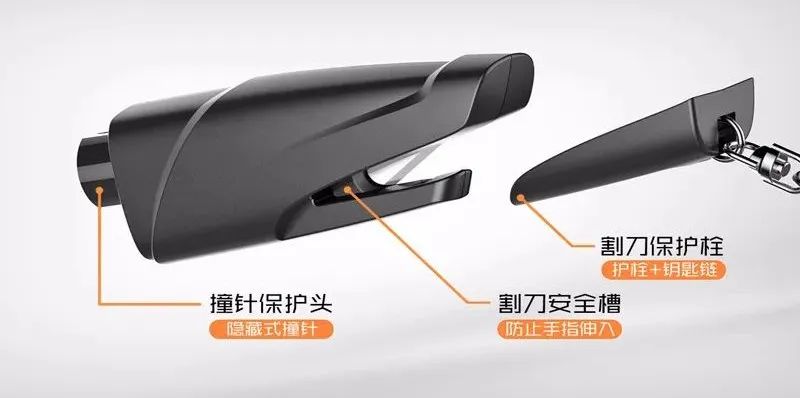
Take Action Today:
- Check your car for accessible emergency tools.
- Replace old or untested breakers.
- Share this guide with friends and family.
Remember: Safety isn’t about luck—it’s about preparation.
Need a Reliable Car Window Breaker?
Visit trusted automotive retailers or online stores to purchase a high-quality tool. Opt for brands with verified customer reviews and safety certifications.
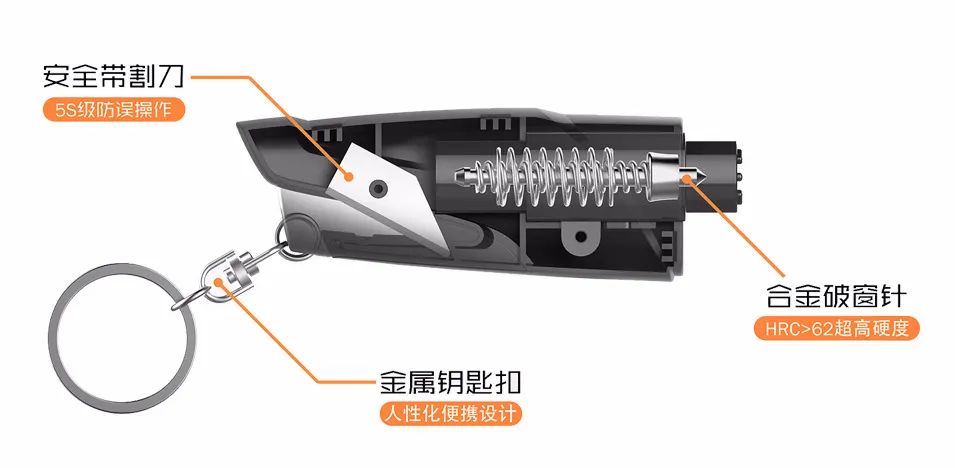
Stay safe, stay prepared!
